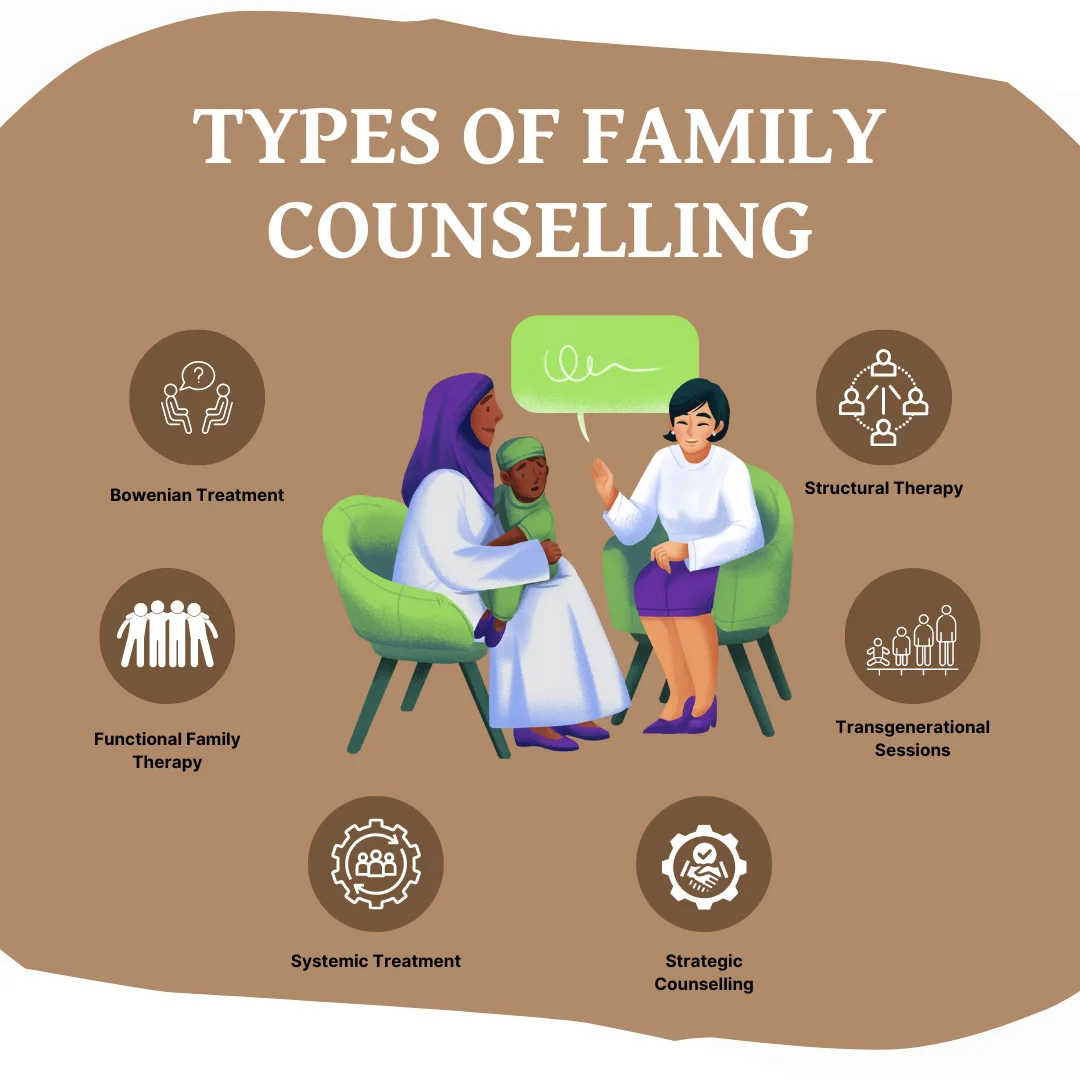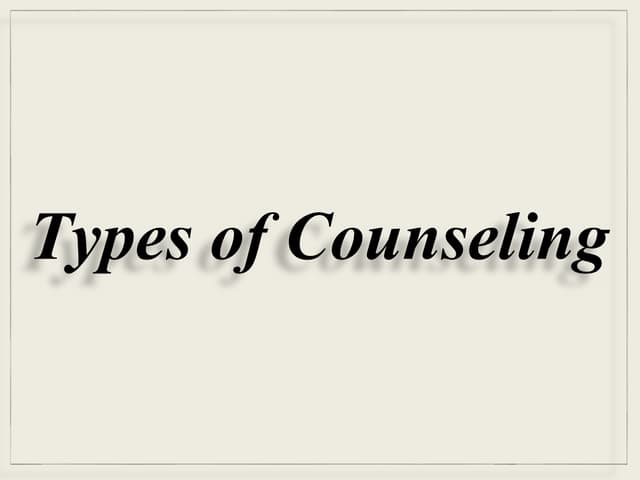Practical Techniques Used in adhd counselling sessions to Boost Focus and Daily Life
Wiki Article
A Comprehensive Guide to the Various Kinds Of Therapy and Their Effect
Counseling includes a range of therapeutic methods, each designed to meet one-of-a-kind psychological health and wellness requirements. From the structured techniques of Cognitive-Behavioral Treatment to the understanding nature of Person-Centered Treatment, these modalities supply distinctive paths to individual development. Family members treatment and Dialectical Behavior modification supply additional frameworks for healing, while group counseling promotes neighborhood support. Comprehending these diverse methods can brighten their extensive effect on specific wellness. What stays to be checked out are the intricacies of each strategy.
Understanding Cognitive-Behavioral Therapy (CBT)
Although many therapeutic approaches exist, Cognitive-Behavioral Therapy (CBT) stands out as a result of its structured, goal-oriented nature. This kind of treatment is based on the premise that ideas, sensations, and actions are interconnected, and by changing negative idea patterns, people can modify their psychological reactions and actions. CBT uses numerous methods, such as cognitive restructuring, which assists clients recognize and test distorted beliefs. Behavior activation motivates interaction in pleasurable tasks to battle anxiety.Usually, CBT is a short-term therapy, usually long-term in between 12 to 20 sessions, making it accessible for those seeking quick results. Its effectiveness has been well-documented in treating stress and anxiety conditions, anxiety, and various other mental health and wellness problems. The therapist's role is to direct clients through workouts and research jobs, cultivating self-awareness and advertising lasting coping approaches. This sensible strategy equips individuals to take control of their mental well-being, inevitably bring about boosted life satisfaction.
Discovering Person-Centered Therapy
Person-Centered Treatment, established by Carl Rogers, offers a different technique to Cognitive-Behavioral Treatment by highlighting the client's subjective experience. This therapeutic version focuses on the individual's perspective, cultivating an atmosphere of empathy, genuine favorable regard, and credibility. By enabling customers to explore their feelings and ideas without judgment, specialists promote individual development and self-discovery.The core tenet of Person-Centered Therapy is the belief that people possess the inherent ability for self-healing and personal advancement. In this setup, the therapist acts as a helpful guide as opposed to an instruction authority, urging clients to organize their own trip. This strategy is particularly effective for those coming to grips with problems such as reduced self-worth, stress and anxiety, or anxiety, as it encourages them to confront and comprehend their feelings. Eventually, Person-Centered Treatment grows a solid restorative partnership, cultivating trust and openness vital for significant adjustment.
The Function of Family Members Treatment in Recovery
Household treatment functions as a crucial part in the recovery procedure for individuals and their connections. This restorative method concentrates on improving interaction, resolving problems, and cultivating much deeper links among family members. By resolving useless characteristics, household therapy encourages each participant to share their ideas and sensations in a risk-free environment, advertising understanding and compassion.
The effect of household therapy prolongs beyond the sessions, as improved relationships can lead to enhanced psychological health for all involved. Overall, family therapy plays an important function in recovery by cultivating unity, strength, and common assistance among member of the family, inevitably directing them toward a much healthier, a lot more fulfilling life with each other.
Unboxing Dialectical Behavior Modification (DBT)
Structure on the foundation of therapeutic strategies that improve emotional well-being, Dialectical Behavior modification (DBT) supplies an organized framework for people battling with intense emotions and behavior difficulties. Developed by Marsha Linehan, DBT incorporates cognitive-behavioral methods with mindfulness practices, aiming to assist customers handle frustrating feelings and boost social performance.The therapy is specifically useful for those detected with Borderline Character virtual therapy Disorder however is likewise suitable to a variety of various other psychological health and wellness problems. virtual therapy. DBT consists of individual treatment sessions and abilities training teams, concentrating on four essential capability: mindfulness, distress resistance, feeling law, and social efficiency
The Benefits of Group Coaching Procedure
While individual treatment supplies useful insights, group therapy sessions use special benefits that can significantly enhance the healing experience. One crucial advantage is the sense of area that arises among participants. Individuals often locate comfort in sharing their experiences with others facing comparable difficulties, fostering an encouraging atmosphere that decreases sensations of isolation.Moreover, team sessions motivate varied viewpoints, enabling participants to discover from each other's coping strategies and insights. This cumulative knowledge can bring about enhanced problem-solving abilities and a broader understanding of personal issues.
In addition, team therapy frequently promotes accountability, as members motivate each other to pursue their objectives and stick to their dedications. Ultimately, the cost-effectiveness of team treatment makes it an obtainable alternative for many people seeking assistance. In general, the collective nature of team counseling sessions can considerably improve the therapeutic trip.
Regularly Asked Questions
What Certifications Do Therapists Need to Practice Counseling?
Therapists commonly require an appropriate level in psychology or therapy, along with monitored professional experience. Additionally, they have to get appropriate licensure or accreditation to exercise lawfully, making certain adherence to professional standards and ethical guidelines.How Do I Select the Right Kind Of Therapy for Me?
Selecting the right type of treatment includes reviewing individual needs, checking out numerous methods, considering specialist specialties, and looking for recommendations. Understanding specific goals and choices can greatly improve the effectiveness and satisfaction of the restorative experience.
Are Online Therapy Sessions as Effective as In-Person Ones?
The efficiency of online therapy sessions contrasted to in-person ones commonly depends on specific preferences and conditions. Research study shows that both techniques can generate positive results, though some might discover better comfort in face-to-face interactions.The Length Of Time Does Therapy Typically Last?

What Should I Anticipate Throughout My First Therapy Session?
During the first therapy session, clients can anticipate an introduction, conversation of their worries, establishment of objectives, and an introduction of the counseling procedure - adhd counselling. This initial conference aims to build relationship and assurance convenienceReport this wiki page